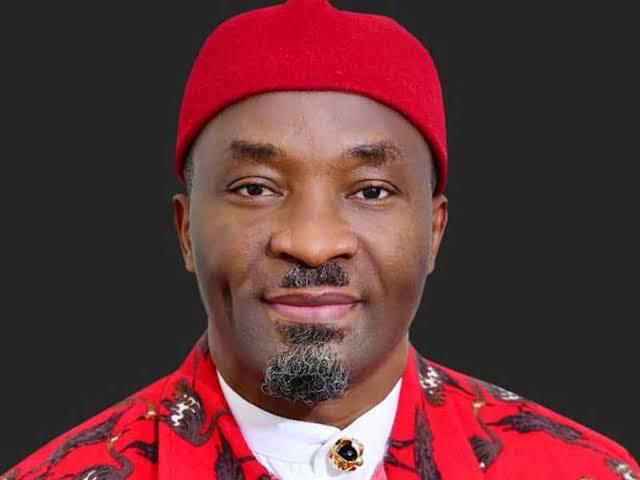Reps Reject U.S. Senate’s Genocide Claim Against Christians in Nigeria.
The House of Representatives has dismissed the U.S. Senate’s claim describing Nigeria’s insecurity as genocide against Christians or state-sponsored persecutiom, saying it misrepresents the country’s true situation.
The decision followed a motion by Deputy Speaker Benjamin Kalu, titled “Urgent Need for a Coordinated Diplomatic and Domestic Response to the Proposed Nigeria Religious Freedom Accountability Act of 2025 (U.S. Senate Bill S.2747)”.
Kalu said the U.S. bill, introduced on September 9, 2025, which seeks to label Nigeria a “Country of Particular Concern” and impose sanctions under the Global Magnitsky Act, is based on incomplete assessments.
He stressed that Nigeria’s Constitution guarantees freedom of religion and that insecurity is multi-causal, driven by insurgency, banditry, separatism, and communal clashes—not religion.
Lawmakers warned that the U.S. claim could undermine Nigeria’s sovereignty and strain diplomatic ties. Julius Ihonvbere called for swift diplomatic engagement, while Oluwole Oke described the claim as a “deliberate attempt to damage Nigeria’s image.”
The House reaffirmed constitutional religious freedom, condemned all forms of violence, and rejected the U.S. Senate’s portrayal of Nigeria’s crisis.
It also directed the Foreign Affairs Ministry and the Nigerian Embassy in Washington to lodge a diplomatic protest and present factual data to U.S. and international bodies.
The House of Representatives has dismissed the U.S. Senate’s claim describing Nigeria’s insecurity as genocide against Christians or state-sponsored persecutiom, saying it misrepresents the country’s true situation.
The decision followed a motion by Deputy Speaker Benjamin Kalu, titled “Urgent Need for a Coordinated Diplomatic and Domestic Response to the Proposed Nigeria Religious Freedom Accountability Act of 2025 (U.S. Senate Bill S.2747)”.
Kalu said the U.S. bill, introduced on September 9, 2025, which seeks to label Nigeria a “Country of Particular Concern” and impose sanctions under the Global Magnitsky Act, is based on incomplete assessments.
He stressed that Nigeria’s Constitution guarantees freedom of religion and that insecurity is multi-causal, driven by insurgency, banditry, separatism, and communal clashes—not religion.
Lawmakers warned that the U.S. claim could undermine Nigeria’s sovereignty and strain diplomatic ties. Julius Ihonvbere called for swift diplomatic engagement, while Oluwole Oke described the claim as a “deliberate attempt to damage Nigeria’s image.”
The House reaffirmed constitutional religious freedom, condemned all forms of violence, and rejected the U.S. Senate’s portrayal of Nigeria’s crisis.
It also directed the Foreign Affairs Ministry and the Nigerian Embassy in Washington to lodge a diplomatic protest and present factual data to U.S. and international bodies.
Reps Reject U.S. Senate’s Genocide Claim Against Christians in Nigeria.
The House of Representatives has dismissed the U.S. Senate’s claim describing Nigeria’s insecurity as genocide against Christians or state-sponsored persecutiom, saying it misrepresents the country’s true situation.
The decision followed a motion by Deputy Speaker Benjamin Kalu, titled “Urgent Need for a Coordinated Diplomatic and Domestic Response to the Proposed Nigeria Religious Freedom Accountability Act of 2025 (U.S. Senate Bill S.2747)”.
Kalu said the U.S. bill, introduced on September 9, 2025, which seeks to label Nigeria a “Country of Particular Concern” and impose sanctions under the Global Magnitsky Act, is based on incomplete assessments.
He stressed that Nigeria’s Constitution guarantees freedom of religion and that insecurity is multi-causal, driven by insurgency, banditry, separatism, and communal clashes—not religion.
Lawmakers warned that the U.S. claim could undermine Nigeria’s sovereignty and strain diplomatic ties. Julius Ihonvbere called for swift diplomatic engagement, while Oluwole Oke described the claim as a “deliberate attempt to damage Nigeria’s image.”
The House reaffirmed constitutional religious freedom, condemned all forms of violence, and rejected the U.S. Senate’s portrayal of Nigeria’s crisis.
It also directed the Foreign Affairs Ministry and the Nigerian Embassy in Washington to lodge a diplomatic protest and present factual data to U.S. and international bodies.
0 Reacties
·0 aandelen
·279 Views




